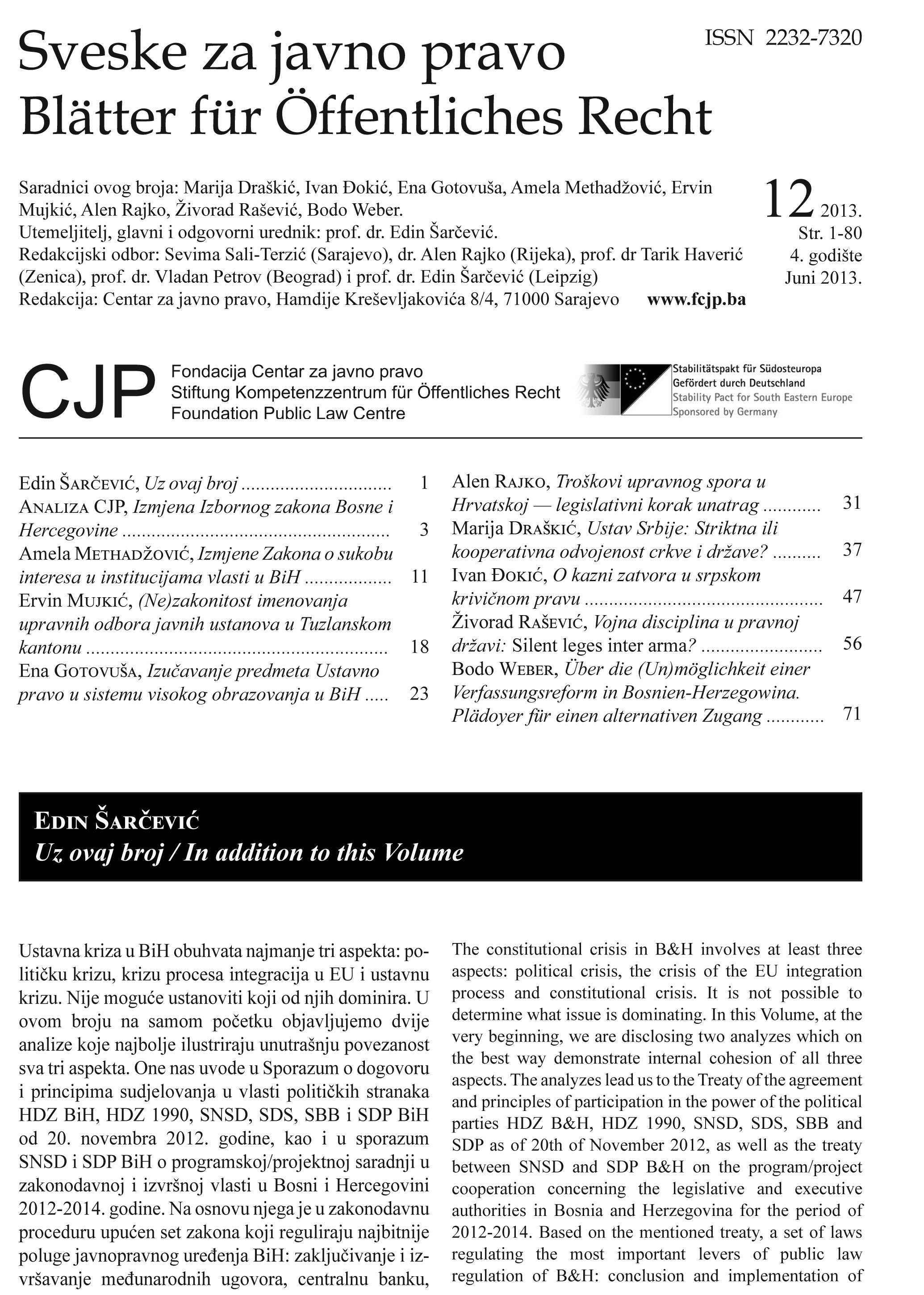Über die (Un)möglichkeit einer Verfassungsreform in Bosnien-Herzegowina. Plädoyer für einen alternativen Zugang
On the (Im)possibility of a constitutional reform in Bosnia and Herzegovina. Plea for alternative approach
Author(s): Bodo WeberSubject(s): Politics / Political Sciences, Nationalism Studies, Inter-Ethnic Relations
Published by: Fondacija Centar za javno pravo
Keywords: Bosnia and Herzegovina; Constitutional reform; Conflict; Conflict between forms of legitimacy; Ethnicity;
Summary/Abstract: The article looks at the current blockade of the constitutional reform process in Bosnia-Herzegovina, which the author identifies to be at the center of a multi-layer structural crisis. He notes that the constitutional reform discourse serves as a co-generator of (ethno-)political conflict and institutional instability. He points out that this phenomenon has a continuity stretching back three decades.The article argues that the reason for the conflict-generating role of the constitutional reform discourse lies in the relationship between the manifest contents of the discourse and its underlying, hidden (socio-)political function. In order to identify that function the authors lays out the continuity of the “constituent peoples” (konstitutivni narodi) as the key term of the constitutional reform discourse – its metamorphosis from its origin in Titoist socialist nationality policy through post-socialist ethnic warfare to the post-war Dayton constitution. He argues that the underlying function of the constitutional reform discourse is for the political elites to maintain a political culture and practice of undermining state institutions from within and to prevent citizens from active socio-political participation.On the background of that analysis, the author concludes that the current constitutional reform deadlock cannot be overcome by any constitutional-legal, normative-theoretical approach – at least not alone.What is necessary is a creative constitutional legal approach that is at the same time oriented towards transforming the (socio)political practice, and that is thus oriented towards the generation/construction of citizens. Such an approach, the author argues, must include at least two elements: first, a realistic view at the relationship between ethnicity and the state in today’s Bosnia instead of aiming at theoretically ideal normative solutions; and second, to make the local, municipal level the starting point of a reform process to coordinate governance layers and institutions so as to bridge the current disconnect between state institutions, political elites and citizens.
Journal: Sveske za javno pravo
- Issue Year: 4/2013
- Issue No: 12
- Page Range: 71-79
- Page Count: 9
- Language: German

